Sommelier interview guide is your roadmap to successful interviews, whether you’re hiring or applying.
From preparation strategies to role-specific questions and industry insights, this article helps you approach the process with confidence.
How To Prepare Using a Sommelier Interview Guide for Employers
To attract and select the ideal Sommelier for your establishment, consider the following steps:
- Define the role's responsibilities
- Develop targeted interview questions
- Highlight your establishment's strengths
- Focus on collaboration
Source: VinePair
Sommelier Interview Guide for Applicants
To make a positive impression during your sommelier interview, follow these steps:
- Research the establishment
- Align your experience with the role
- Prepare for common interview questions
- Choose the appropriate attire
Interview Questions To Avoid Asking a Sommelier as an Employer
To maintain a fair and legal interview process, refrain from asking questions about:
- Age or date of birth
- Marital or family status
- National origin or citizenship
- Disabilities or health conditions
- Religious beliefs
For comprehensive guidelines, refer to the U.S. Equal Employment Opportunity Commission.
General Sommelier Interview Questions for Employers & Applicants
Interviews often go beyond technical skills and delve into a candidate’s personality, experience and ability to contribute to the workplace.
These questions are designed to help employers uncover essential qualities and allow applicants to demonstrate their unique strengths.
1. What unique experiences have shaped your professional journey?
For employers: This question provides insight into the candidate’s background.
For applicants: Highlight specific experiences that demonstrate your skills.
Example answer: "My time as a Server in a Michelin-starred restaurant taught me the importance of precision and guest satisfaction. That role inspired me to develop expertise in wine service and ultimately pursue certification as a Sommelier."
2. How do you approach building relationships with colleagues?
For employers: This question evaluates the candidate’s interpersonal skills.
For applicants: Share examples of how you collaborate effectively.
Example answer: "I value open communication and mutual respect. In my previous job, I made it a point to share knowledge with and train alongside the Servers and Chefs. This helped ensure our team works more seamlessly."
3. What do you consider your most significant professional strength?
For employers: Identify the candidate’s key strengths.
For applicants: Focus on a strength relevant to the job.
Example answer: "My strongest skill is attention to detail. For instance, I introduced a new system for tracking guest preferences, which resulted in a 15% increase in repeat customers."
4. Describe a time you successfully overcame a professional challenge.
For employers: This question assesses the candidate’s problem-solving ability.
For applicants: Provide a clear example of a challenge, your actions and the outcome.
Example answer: "In my previous role, we faced a supplier shortage that affected our wine inventory. I quickly sourced alternative wines from local vendors and trained staff on new pairings, ensuring the service remained seamless and guests were satisfied."
5. How do you stay motivated during high-pressure situations?
For employers: This helps gauge how the candidate delivers results under stress.
For applicants: Share specific strategies of how you handle demanding environments.
Example answer: "I stay motivated by focusing on preparation and teamwork. During a particularly busy holiday service, I ensured the team had all necessary tools and communicated effectively to meet guest expectations without compromising quality."
6. How do you approach learning and professional development?
For employers: Use this question to evaluates the candidate’s commitment to self-improvement.
For applicants: Discuss specific actions you take to enhance your knowledge.
Example answer: "I regularly attend workshops and industry tastings to stay informed. Recently, I completed a wine certification course, which improved my understanding of pairing wines with diverse cuisines."
7. Can you share an example of a time you received constructive feedback and how you handled it?
For employers: This question helps gauge the candidate’s ability to accept feedback.
For applicants: Provide an example where feedback helped you grow and improve.
Example answer: "During a performance review, I was told I needed to improve my time management. I took the feedback seriously and started using scheduling tools to prioritize tasks, which significantly increased my efficiency."
8. What do you look for in an ideal workplace environment?
For employers: This question allows you to understand the candidate’s priorities.
For applicants: Describe the key elements of a work environment that help you thrive.
Example answer: "I value teamwork and open communication. In my last role, I worked in a supportive environment where we regularly collaborated on ways to improve guest experiences, which motivated me to give my best."
9. How do you prioritize tasks when managing multiple responsibilities?
For employers: This question assesses the candidate’s ability to multitask effectively.
For applicants: Explain your approach to handling competing priorities while maintaining quality.
Example answer: "I prioritize by evaluating deadlines and the importance of each task. For example, during a busy event, I focused on ensuring the wine inventory was prepared first, followed by training staff on the evening’s pairings."
10. Do you have any questions about this role or our establishment?
For employers: This allows you to assess their genuine interest in your company.
For applicants: Use this opportunity to ask thoughtful questions.
Example answer: "Yes, I’d like to know more about your approach to developing seasonal wine lists. How involved is the team in contributing ideas or selecting new additions?"
Role-Specific Questions: Sommelier Interview Questions
These questions are tailored to evaluate the unique skills and expertise required of a Sommelier.
1. How do you identify wines that will appeal to different customer preferences?
For employers: This question evaluates the candidate’s ability to cater to a diverse clientele.
For applicants: Share your process for understanding guest preferences and tailoring recommendations.
Example answer: "I ask guests open-ended questions about their preferences, such as whether they enjoy bold or light flavors. Based on their responses, I recommend wines that align with their tastes and enhance their meal."
2. How do you handle inventory management and reduce waste?
For employers: This question helps assess organizational skills.
For applicants: Highlight the strategies you use.
Example answer: "I track inventory weekly and analyze sales trends to adjust orders accordingly. I also use a first-in, first-out approach to prevent spoilage and ensure cost-effective stock rotation."
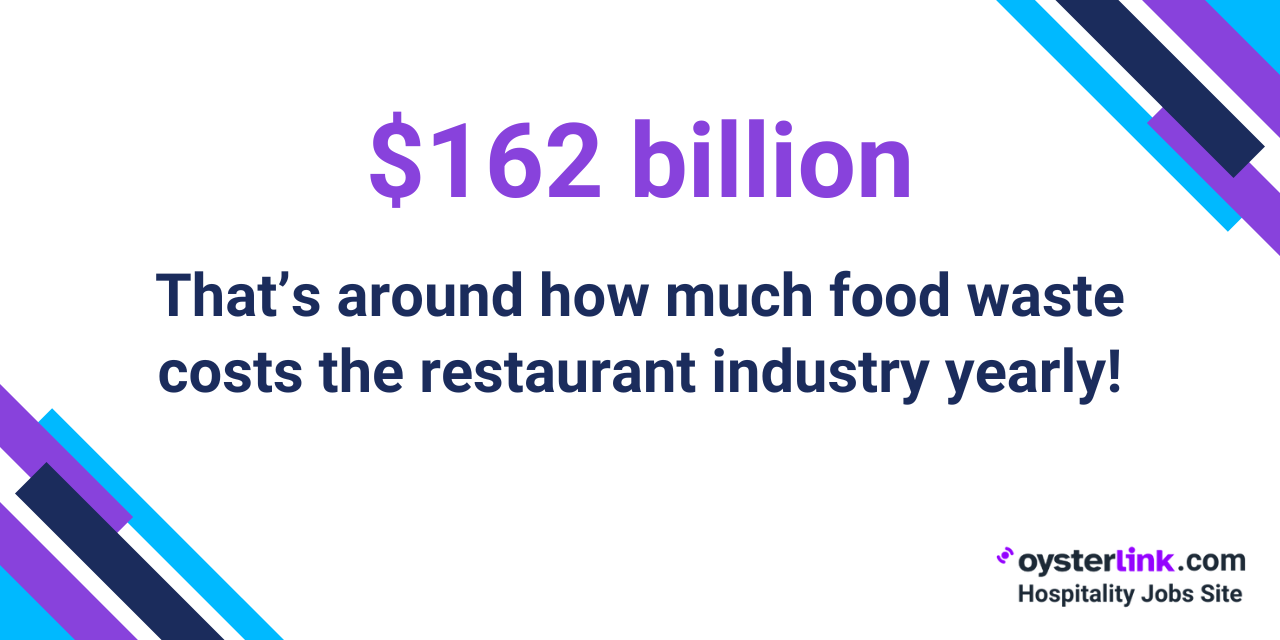
3. Can you describe your approach to training staff about wine?
For employers: This evaluates the candidate’s leadership skills.
For applicants: Discuss your methods for making wine education engaging.
Example answer: "I create fun, interactive sessions where staff taste wines and learn how to describe them. I also develop simple pairing guides to help them confidently recommend wines to guests."
4. How do you collaborate with Chefs to create wine pairings for the menu?
For employers: This assesses the candidate’s ability to work as part of a team.
For applicants: Explain your process for aligning wine selections with the menu.
Example answer: "I work closely with the Chef to understand the menu’s flavor profiles and suggest complementary and contrasting pairings. For example, I recently paired a spicy dish with an off-dry Riesling, which balanced the heat and enhanced the flavors."
5. How do you ensure the wine list stays relevant to current trends and guest preferences?
For employers: This question tests the candidate’s ability to adapt to industry trends.
For applicants: Share how you stay informed.
Example answer: "I attend tastings, follow industry publications and gather guest feedback to identify trends. Recently, I added natural wines to the list, which resonated with eco-conscious diners and boosted sales."
Sommelier Interview Guide: Statistics and Industry Insights in the U.S.
- Most recent data shows that there are 273 Master Sommeliers worldwide, with a significant number based in the United States.
- Approximately 68.3% of Sommeliers are men, while 31.7% are women.
- About 51.4% of Sommeliers are White, 21.5% are Hispanic or Latino, 11.3% are Black or African American, and 9% are Asian.
If you want to learn more info such as those above, explore our Sommelier Statistics page.
Where To Find Sommelier Job Tips and Opportunities
Finding the right platform to connect with opportunities is crucial for Sommeliers looking to advance their careers.
Below are some of the best job boards and platforms for Sommeliers, starting with OysterLink.
1. OysterLink

OysterLink is a premier platform that caters specifically to hospitality professionals, connecting Sommeliers with roles in fine dining, luxury hotels and wineries.
With tools to filter jobs by location, experience and salary expectations, it provides a seamless experience for those seeking opportunities in this niche industry.
Below are some of the top advantages of using OysterLink:
- Exclusive focus on the hospitality industry, making job searches highly relevant
- Comprehensive resources, including salary benchmarks and career guides
- User-friendly interface with filters for roles, locations, and experience levels
2. Winejobs.com
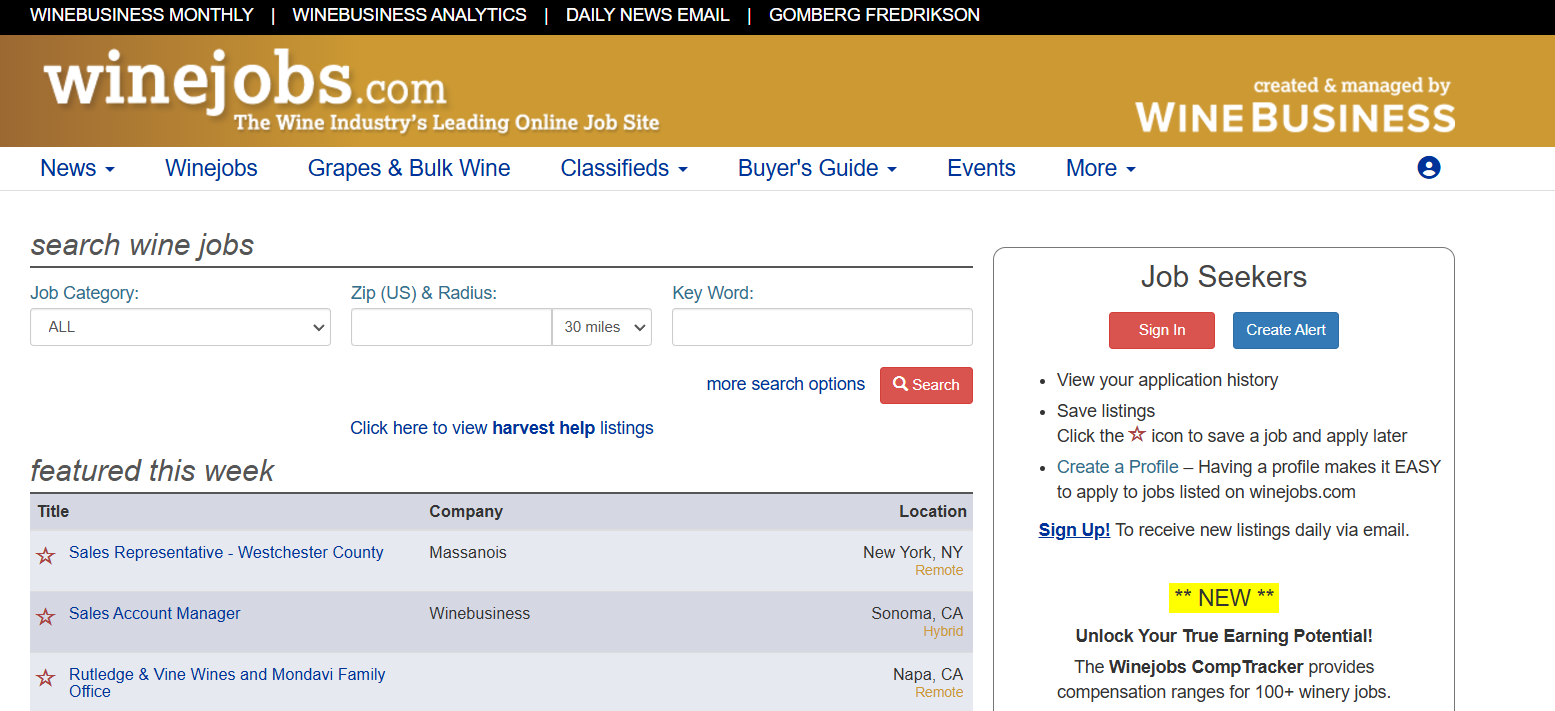
WineJobs.com is a specialized platform dedicated to careers in the wine industry, making it a go-to resource for Sommeliers.
Its listings include roles ranging from wineries and distributors to restaurants, giving candidates access to a variety of job types within the field.
| Pros | Cons |
| Niche focus ensures relevant listings | Limited international reach |
| Features job opportunities across the wine supply chain | Smaller database compared to general job boards |
| Focused on wine-related roles | Requires frequent updates for new listings |
3. Culinary Agents
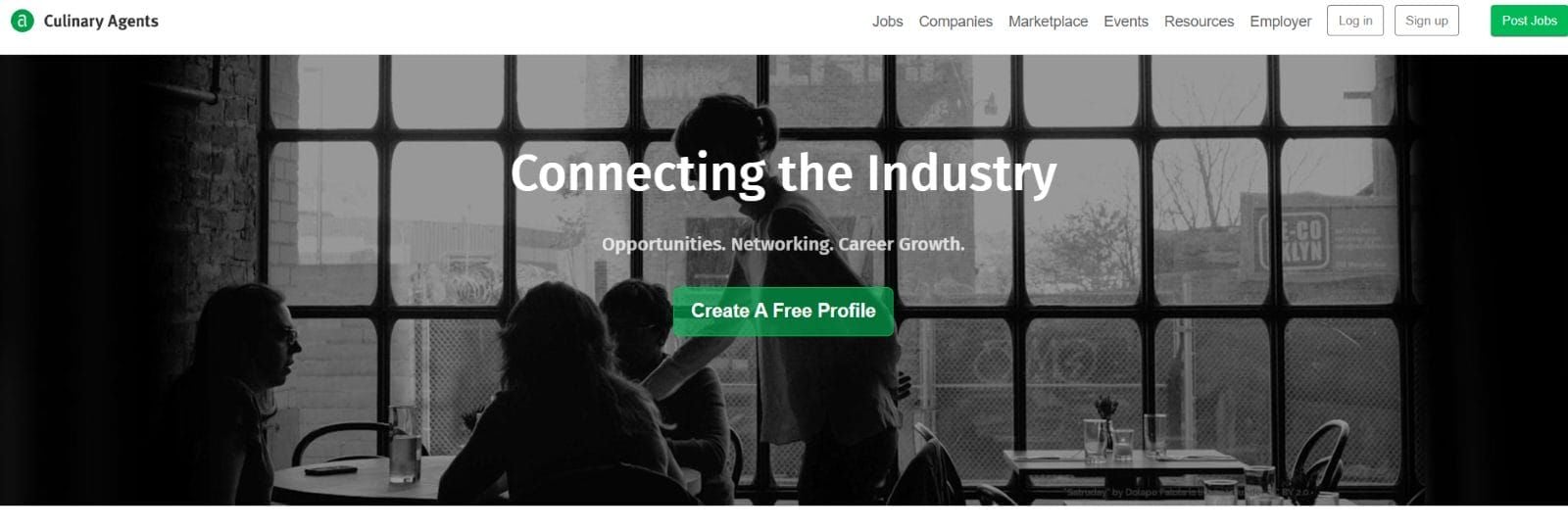
Culinary Agents is a platform designed for professionals in the restaurant and hospitality industry.
It not only provides job postings but also offers networking opportunities and career advice, making it ideal for Sommeliers seeking to expand their professional connections.
| Pros | Cons |
| Offers networking features to connect with industry leaders | Limited to certain geographic regions |
| Tailored opportunities for Sommeliers and hospitality professionals | Requires a profile to access most features |
| Career development resources available | Some advanced tools require a paid subscription |
4. Indeed
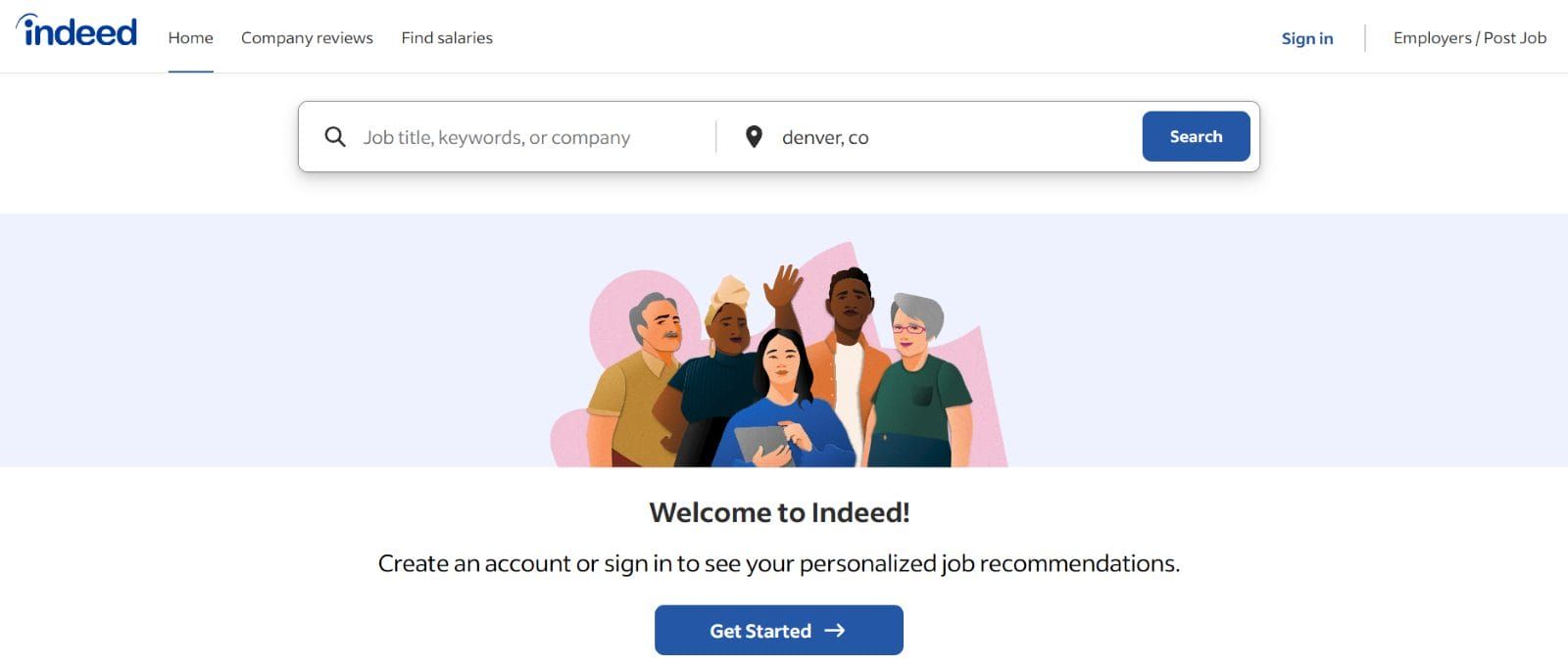
Indeed aggregates job listings from across the internet, offering an extensive variety of positions, including Sommelier roles.
With its robust filtering options, job seekers can refine searches by location, salary and experience level, making the process more efficient.
The platform also allows users to set up alerts for specific keywords, ensuring they don’t miss any relevant postings.
| Pros | Cons |
| Massive database with listings across industries | Not industry-specific |
| Provides salary insights to compare job offers | Potential for outdated or duplicate listings |
| User-friendly search filters | Limited networking opportunities |
5. Poached
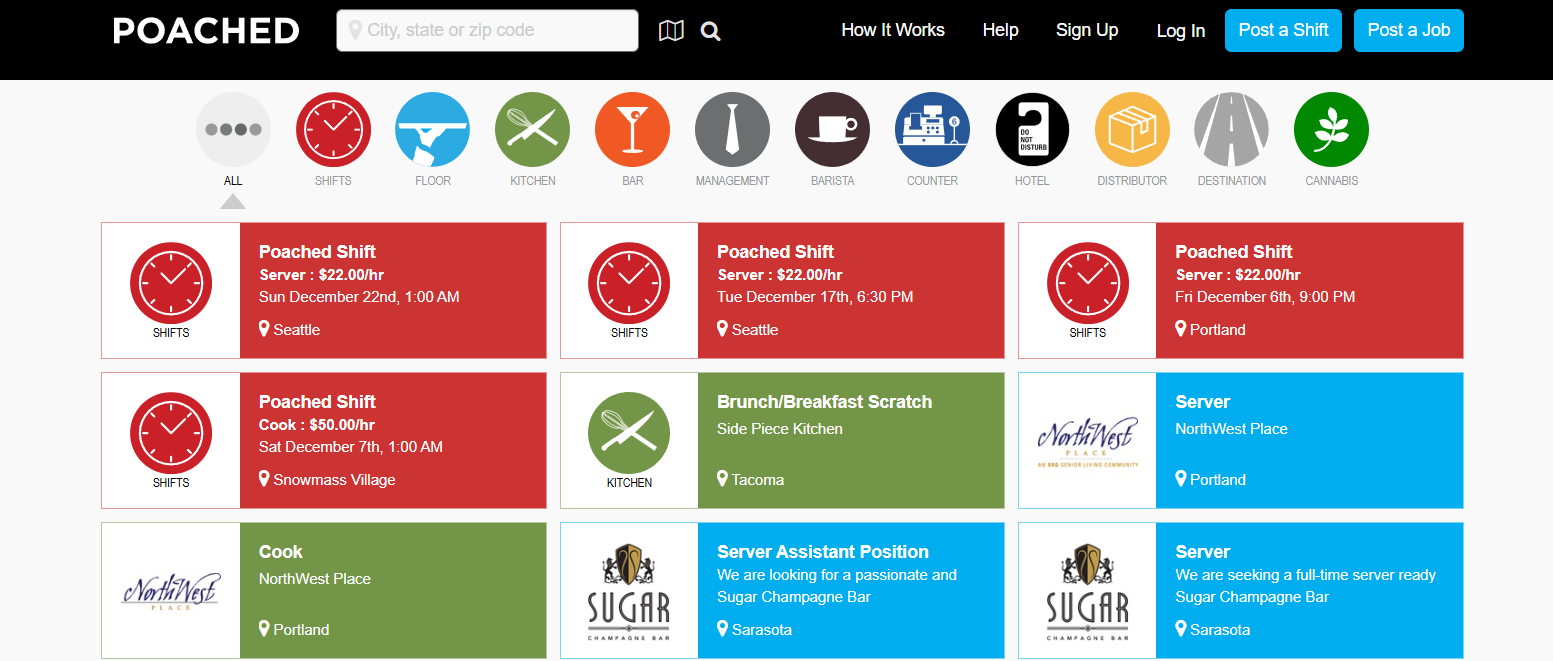
Poached Jobs focuses on connecting hospitality talent with employers, offering an easy-to-use platform where Sommeliers can find job postings across the U.S.
It is particularly popular for its straightforward application process and targeted listings for restaurant roles.
| Pros | Cons |
| Simple and efficient application process | Limited features for free users |
| Industry-specific listings reduce irrelevant searches | Less focus on wine-specific roles |
| Strong reputation within the restaurant sector | Lacks detailed employer profiles |
Sommelier Job Tips: Find and Post Roles With OysterLink
OysterLink is a powerful tool for both Sommeliers and employers, designed to cater exclusively to the hospitality industry.
For job seekers, the platform provides targeted opportunities, ensuring that each position aligns with your skills and career aspirations.
With additional resources like salary benchmarks and career tips, OysterLink helps Sommeliers navigate the job market with confidence.
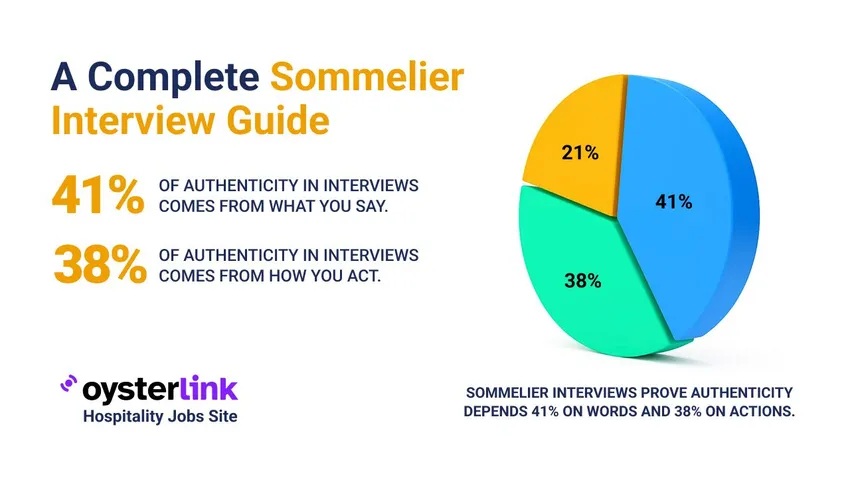








Loading comments...